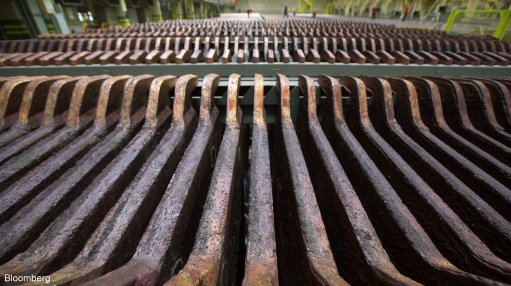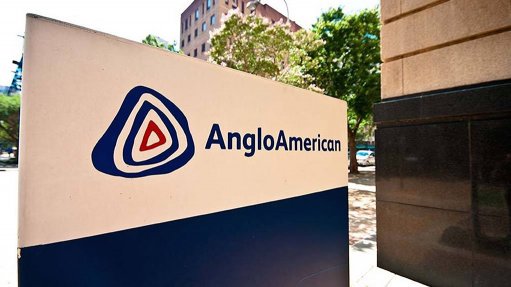SA power challenges offer opportunities for engineers, infrastructure industry over ‘next 15 years’
State-owned utility Eskom is facing considerable challenges and steps have to be taken to ensure that the current and projected future power generation gap is plugged.
This opens up opportunities for the infrastructure industry and for engineers over the next 15 years, Eskom group COO Jan Oberholzer averred on the first day of industry body Consulting Engineers South Africa’s (Cesa’s) Infrastructure Indaba, on August 18.
Oberholzer outlined Eskom’s challenges as broadly being inadequate generation capacity, a precarious financial situation and constrained grid access.
He said the generation capacity difficulties were due to a lack of maintenance, leading to a system that is unreliable and unpredictable. He explained that the country’s infrastructure is aging, which has resulted in a deterioration in generation performance. There has also been a loss of critical skills.
With regard to financial issues, Oberholzer said the entity has a weak balance sheet, owing to a high debt burden, lower-than- cost-reflective tariffs, and low revenue owing to nonpayment and reduced sales.
Also speaking at the indaba was Finance Minister Enoch Godongwana, who reiterated that some debt relief was being provided to Eskom by government.
Concerning grid access, Oberholzer said there were constraints in connecting additional capacity in high-yielding areas.
The current outlook showed there would still be a 4 GW to 6 GW peak shortfall in electricity generation by 2024/25 and this would increase to more than 10 GW for 2032 to 2035.
Therefore, Oberholzer emphasised the need for new generation capacity in the country.
He emphasised that Eskom could not provide the additional capacity needed alone, and that it had been vocal about the need for partnerships, through avenues such as independent power producers (IPPs).
However, he cautioned that adding baseload capacity would take time; therefore, there was a need for an interim solution, which would include energy storage.
“Over the next 15 years, the country must install about 60 GW of generation capacity. This presents a very exciting time for the country’s engineers, as much work needs to be done and solutions are required to ensure that South Africa has adequate energy,” Oberholzer noted.
Eskom estimates that, over the next 15 years, an investment of R1.2-trillion will be needed.
Some of the solutions being introduced by the entity included making land available for IPPs, close to load centres and transmission infrastructure so that Eskom could distribute this power, Oberholzer outlined.
He averred that in the next two to three years the country could unlock 4 GW of power just by reconfiguring the transmission network, and investing in it.
He also mentioned the need for considerable investment to modernise and expand the country’s grid infrastructure, connecting new plants – with this presenting opportunities for the industry.
He also mentioned that, in terms of plugging some of the skills shortages at Eskom, the entity had been engaging recently in discussions with bodies such as the National Society of Black Engineers of South Africa, and with its participation at the Cesa indaba, it was looking at how to encourage the participation of young engineers to bolster Eskom.
Infrastructure Drive
Godongwana reiterated Oberholzer’s sentiment about the need for infrastructure investment, and for this to be ramped up.
However, he noted that there were four main challenges that must be addressed to facilitate the investment.
These challenges include:
- the levels of government investment, including underspending of conventional infrastructure budgets by government institutions;
- under-provision of maintenance budgets for conventionally procured infrastructure, resulting in declining quality/quantity of services provided by that infrastructure.
- considerable waste and corruption in the selection and execution of infrastructure projects, resulting in unnecessarily high costs of delivering infrastructure projects, or even a failure to deliver infrastructure projects at all in the worst scenario; and
- a steep decline in the delivery of public- private partnerships, with deals executed in the recent past also increasingly dominated by accommodation-type projects, the funding of which comes from the fiscus.
Comments
Press Office
Announcements
What's On
Subscribe to improve your user experience...
Option 1 (equivalent of R125 a month):
Receive a weekly copy of Creamer Media's Engineering News & Mining Weekly magazine
(print copy for those in South Africa and e-magazine for those outside of South Africa)
Receive daily email newsletters
Access to full search results
Access archive of magazine back copies
Access to Projects in Progress
Access to ONE Research Report of your choice in PDF format
Option 2 (equivalent of R375 a month):
All benefits from Option 1
PLUS
Access to Creamer Media's Research Channel Africa for ALL Research Reports, in PDF format, on various industrial and mining sectors
including Electricity; Water; Energy Transition; Hydrogen; Roads, Rail and Ports; Coal; Gold; Platinum; Battery Metals; etc.
Already a subscriber?
Forgotten your password?
Receive weekly copy of Creamer Media's Engineering News & Mining Weekly magazine (print copy for those in South Africa and e-magazine for those outside of South Africa)
➕
Recieve daily email newsletters
➕
Access to full search results
➕
Access archive of magazine back copies
➕
Access to Projects in Progress
➕
Access to ONE Research Report of your choice in PDF format
RESEARCH CHANNEL AFRICA
R4500 (equivalent of R375 a month)
SUBSCRIBEAll benefits from Option 1
➕
Access to Creamer Media's Research Channel Africa for ALL Research Reports on various industrial and mining sectors, in PDF format, including on:
Electricity
➕
Water
➕
Energy Transition
➕
Hydrogen
➕
Roads, Rail and Ports
➕
Coal
➕
Gold
➕
Platinum
➕
Battery Metals
➕
etc.
Receive all benefits from Option 1 or Option 2 delivered to numerous people at your company
➕
Multiple User names and Passwords for simultaneous log-ins
➕
Intranet integration access to all in your organisation


















